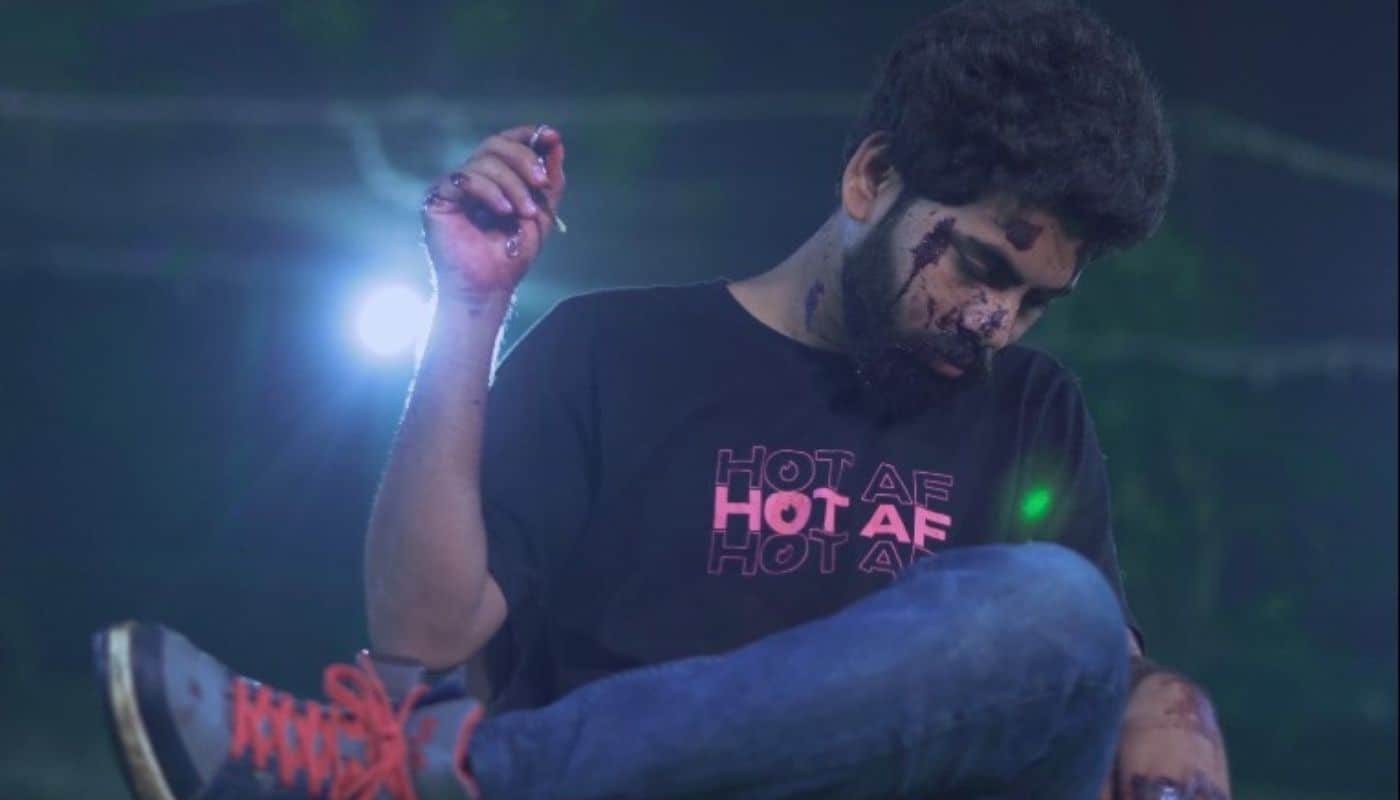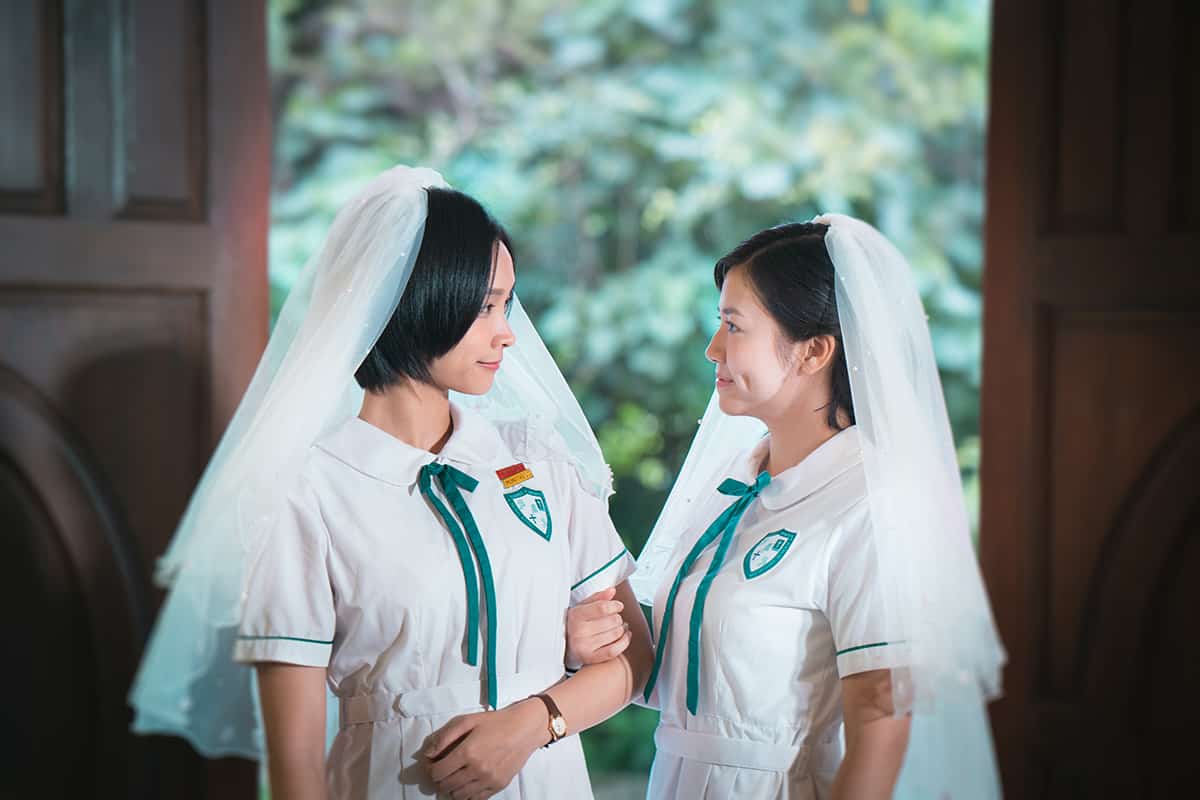Inspired by ‘everyday stories' of digital sex crimes heard by writer-director Jeong Ji-hye, the social drama “Jeong-Sun” reportedly struck a chord with many Koreans in the wake of the notorious Nth room case. After nearly 2 years of international festival runs, including Jeonju, San Sebastian and Rome, “Jeong-Sun” has finally received its South Korean theatrical release. Sincere and heart wrenching, the tearjerker is occasionally muddled in the core of its catharsis. But ultimately, director Jeong conjures important statements on social pressures and ostracization, calling us to reflection and empathy.
Middle-aged and single, Jeong-Sun (Kim Geum-soon) lives a mundane life as a factory worker. While cheery and boisterous in her own way, Jeong-Sun is resigned to living out her own life in reference to others. She abhors any effort at vanity, frets about her daughter's (Yoonkeum Sun-ah) wedding despite the latter's annoyance, and stays on her production line job out of routine, despite having a tyrannical, younger boss. All this changes when a new, quiet worker Yeong-Su (Jo Hyun-woo) begins to pursue her. Jeong-Sun's secret beau gradually tugs her out of her comfort zone onto road trip dates and late night trysts. Against her shy self-deprecation towards her own body, Yeong-Su's affections tease a new confidence in her. Until one day, Jeong-Sun discovers that out of peer pressure, Yeong-Su has leaked a private video of her. Thoroughly exposed and left to the derision of her tight community, Jeong-Sun's peaceful glassy world begins to crumble.
“Jeong-Sun” unravels the needle crawling violation and shame faced by victims of sexual abuse. To trust a loved one with your vulnerable self, only for them to wring it about as social currency. But the greater tragedy comes from Jeong-Sun's and Yeong-Su's repeated betrayals of themselves to gain society's love and acceptance. Jeong-Sun initially hides herself away, believing this to be befitting of herself, though she nags her own daughter to dress better. Her double standards reflect implicit verdicts placed on women: Only young women aspiring to certain social stratas should relish dating, finding love and dressing up. Expectedly, ageism comes hand in hand with the sexist victim-blaming that Jeong-Sun undertakes.
On the other hand, Yeong-Su's desire for friendship from his coworkers, who deem him too emasculated and virginal to fit in, pushes him to leak the video. In both characters, right or wrong, Jeong's script laments the cost on ourselves when we yearn for acceptance. When we resign ourselves to society's nudging and pressures, we also lose autonomy to follow our true desires and values. These questions start down the road for a rigorous film on current issues, but unfortunately wound away from the subsequent plot.
Recent arthouse hits like “Maryam” have proved that while oft (and unfairly) overlooked, ageism and stories about middle-aged women are just as visceral and engaging. Kim Geum-soon and Yoonkeum Sun-ah's tough mother-daughter dynamic does steal the show, so this reviewer would not have the film any other way. However, “Jeong-Sun” does occasionally struggle in balancing its themes; an understandable lapse as the script strives to encompass every detail of Jeong-Sun's intersectional struggles. Beside the anxiety of falling behind in her advanced age, the protagonist is also grappling with a lack of dependence, her working class status, and to bond with her strong headed daughter. All these peripheral struggles dangle over the main plotline, proving distracting and confusing for Jeong-Sun's motivations and actions. Hearts will however, still be won over by an unanticipated turn near the end that ties up the journey.
Surprisingly, even with building emotional intensity, the movie refrains from fully evoking hatred for Yeong-Su. Humanist empathy abounds in the mise-en-scene, a combination of Jung Jin-hyeok's light and composition, Kim Gyeong-rok's sound design, and Hwang Hyeon-tae and Cho Hye-ri's score. The strongest moments find their energy in how the human figure is framed, seen and heard: Jeong-Sun silently tolerating the claustrophobic ritual of the factory's sterilization chamber or Yeong-Su as he hesitantly inches to join his coworkers' smoking circle. Their silence and postures that betray boredom, fear, shame, their emotional distance from the other characters is what culminates in their actions.
Consequently, “Jeong-Sun” carries a timely and evocative tale for our digital age, which does not just stereotypically affect the new generation, but also preceding ones. Care is needed in our time of indifference, where a crucial part of our society is made of unregulated and trivialized photos and videos of strangers floating past our devices everyday. Before we commodify and codify them into social biases, jokes and memes to be forwarded, how often do we stop to what social biases we are perpetuating, or who these people are?















